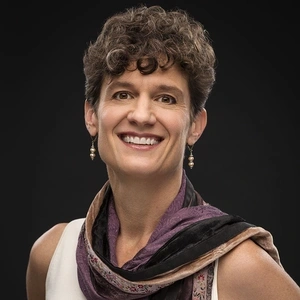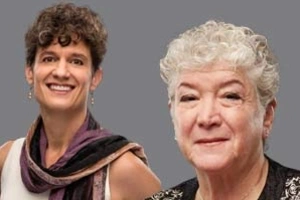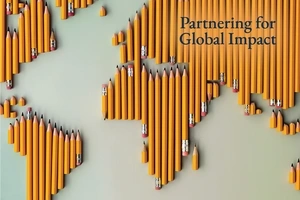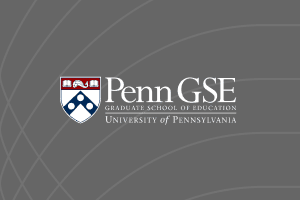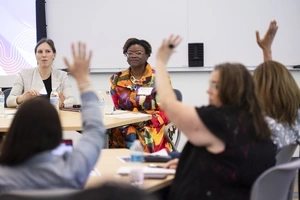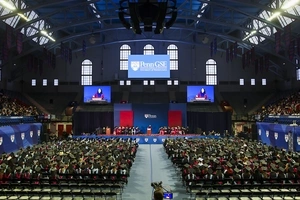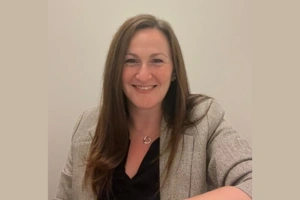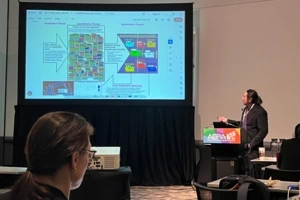Faculty Expert
Last year, Penn GSE launched a new partnership with the Jacobs Foundation to support and empower the next generation of education entrepreneurs. The project, which builds off the School’s leadership as home to the world’s first education entrepreneurship master’s program and first global certificate in education innovation, seeks to create lasting change in the lives of learners worldwide by establishing a new education innovation model pipeline and accelerator.
“Education is one of the most powerful catalysts for change, forging new paths of opportunity, social mobility, and hope for individuals and their communities,” said Penn GSE Dean Pam Grossman. “The Jacobs Foundation shares GSE’s commitment to expanding educational access, which makes us ideal partners in this venture to incubate new, impactful, and sustainable ways to address persistent challenges through innovation effectively.”
A cornerstone of this collaboration is the Jacobs Education Impact Prize, which awards a selected cohort of GSE Education Entrepreneurship master’s students practical and financial support to develop and launch their own education social impact venture. Over a year, these fellows receive $10,000 to $20,000 in funding for their venture, coaching from industry experts, professional development opportunities, and access to the global network of Jacobs Fellows who are also working to transform learning through social entrepreneurship.
The prize’s first recipients are Aqeela Allahyari, Sidra Alvi, Psacoya Guinn, Neha Gupta, Heidi Mitchell, and Natalia Rodriguez. Though their projects have different geographic and educational focuses, the six extraordinary women in this inaugural cohort of fellows at GSE are working to identify and enhance solutions that effectively address children’s individual learning needs and support them in reaching their full potential.
Allahyari, who hails from Riyad, Saudi Arabia, is working on an educational model for her country based on a student's instructional level, not their grade level. Her aim is that her program will be bilingual, based on play, require fewer school hours, and support student success on national standardized tests.
Alvi’s venture, inspired by her experience as a mother and member of the Muslim community, forms partnerships with Islamic preK–12 schools in the US to provide accommodations for differently abled children, thus allowing Muslim parents to enroll all their children in faith-based academic schools.
Guinn, who has worked as a trauma-informed theater teaching artist in New York City shelters, created a nonprofit to help K–5 students experiencing homelessness by combating chronic absenteeism, enhancing learning, and increasing social and emotional development through tutoring services, mentorship, and intergenerational drama therapy workshops.
Gupta has served students through tutoring, college admissions consulting, and skills training through her companies Elite Private Tutors and College Shortcuts, for 15 years. But she is now working on a new venture that helps second-generation students develop and practice future-ready skills, such as marketing, communication, leadership, and collaboration.
In a time when the homeschooling community has quadrupled, Mitchell created Hearth & Home Education with a mission to mentor families as they transition to homeschooling, help them navigate best-fit home learning options, and build a family culture of education.
Rodriguez is the founder of FAM Academy, creating educational solutions to help young girls and women access critical knowledge about their bodies, sexuality, reproduction, and relationships. She wants to expand her project by developing a holistic sex education curriculum in Colombia and other Latin American countries.
“We had a rigorous process in selecting our first cohort of Jacobs Fellows,” said Jenny Zapf, a senior fellow at Penn GSE and director of the Education Entrepreneurship Program who led the selection committee. “Given the strong academic qualifications of our applicants, we evaluated fellows based on their vision, passion, knowledge, and understanding of the problem they wanted to solve and their interest in the fellowship. The ventures of all of our Jacobs Fellows focus on improving learning and development outcomes for youth ages 2 to 12, which is the main priority of the Jacobs Foundation."
Since the prize announcement in October, the fellows have been busy, being coached through designing a minimal viable experiment for their ventures, attending professional development courses, and participating in the Education Entrepreneurship and Innovation Global Certificate course with other Jacobs Fellows from around the world.
The Jacobs Foundation and Penn GSE will award annual fellowships under the Jacobs Education Impact Prize for the next three years. This spring, the current fellows will present their ventures for a second round of funding, and the application period for the next cohort of fellows runs from August 15 through September 15, 2023.
Based in Switzerland, the Jacobs Foundation promotes child and youth development and learning worldwide. Founded in Zurich by entrepreneur Klaus J. Jacobs in 1989, the Foundation is currently in the middle of its Strategy 2030, for which it is committing $500 million Swiss francs to advance education over ten years.
“Our partnership with the Jacobs Foundation,” said Zapf, “strengthens our shared mission and commitment to supporting innovative education solutions that broaden access to quality education and enhance student learning and development across the world.”
Media Inquiries
Penn GSE Communications is here to help reporters connect with the education experts they need.

